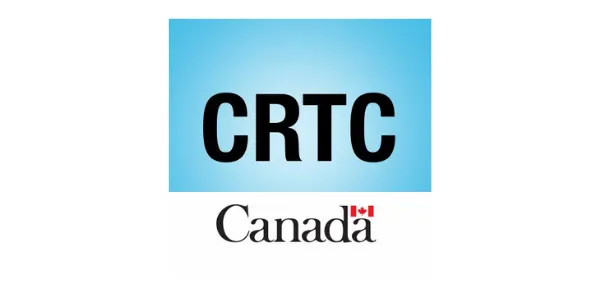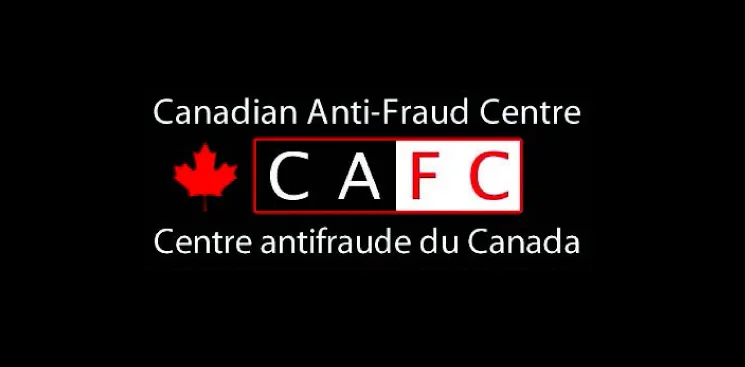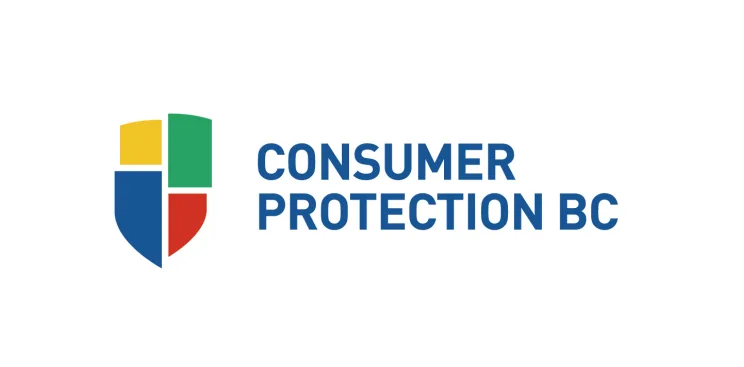
A telemarketer can call me any time of day.
Just as you’re sitting down to dinner, the phone rings. It’s a recorded sales pitch. Again. Can they do this? Learn the steps you can take to stop unwanted calls.
What you should know
“Every other call these days seems like a scam. It's gotten to the point that I rarely pick up the phone anymore. But since I started to report calls, it feels like I might be getting fewer scams calls. So I suppose it’s worth the trouble.”
– Meena, Nelson, BC

You might say there are three kinds of calls that can be irritating:
Legitimate sales calls from legitimate businesses. These are legal but you can still block them, with some exceptions; see below for details.
Sales calls that use practices that aren’t allowed. These you can report to help stop them from continuing.
Calls from fraudulent companies that are trying to scam you. There are ways you can help shut these down.
We explain steps below to deal with each type of call. But first a bit more to help you tell the difference between the three types of calls.
When someone uses the telephone to make unsolicited attempts to sell a product or service or ask for a donation, they are said to be telemarketing.
The law in Canada says a telemarketer must identify themselves at the beginning of the call, and state the purpose of the call. Telemarketers are also subject to rules that they must:
display the number they’re calling from or another number where they can be reached
provide you — if you ask — with a phone number where you can speak to someone about the telemarketing call and an email or postal address of someone you can write to about the telemarketing call
call or send faxes only between 9 am to 9:30 pm on weekdays (Monday to Friday), and between 10 am to 6 pm on weekends (Saturday and Sunday)
As well, with some specific exceptions, telemarketers can’t use robots that dial automatically and deliver a pre-recorded message. (Such devices are called automatic dialing and announcing devices.) These machines can be used:
by police and fire departments,
by schools and hospitals, and
for appointment reminders and thank you calls.
Caller ID is an option available on most phones that lets you see who’s calling you. Some telemarketers mask or falsify this information. This practice is called “spoofing.” It’s a violation of the telemarketing rules and can lead to significant fines.
A spoofed number can appear as a string of digits such as 000-000-0000 or 123-456-7890, a random number, or another company or person’s real number.
If you get a call from a telemarketer who you believe has spoofed the caller ID, you can report them to the Canadian Anti-Fraud Centre on their website or by toll-free phone at 1-888-495-8501.
If you get a suspicious call
If you get a call from someone who says they represent a company or a government agency seeking personal information, hang up and call back to check the authenticity of the request. You can find their phone number on your account statement, in the phone book, or on the organization's website. Never give out personal information such as account numbers, social insurance number (SIN), mother's maiden name, passwords, or other identifying information in response to unexpected calls.
Telemarketers may obtain your phone number in a variety of ways:
from companies that are in the business of generating lists of numbers
from contest forms or applications you fill out
by selecting random numbers to call
from companies you deal with
Don't share your phone number widely
To lessen the chances a telemarketer gets your number, be careful about providing your number to anyone. On forms, always check off any privacy option that says you “Do not wish to be contacted." If there is no privacy option, be cautious about providing your telephone number. You may also ask companies you do business with to not share your phone number or any other personal information with any third parties.
A distinctly nasty type of call is one from a phony company that’s trying to defraud you. These calls are illegal and you can report them to help stop these scams from happening.
For example, a caller might claim to be an agent from a well-known company like Microsoft. Sorry to inform you, they say, but it looks like your computer may be infected. Lucky for you they can help fix or “clean” your computer. They ask for some passwords so they can take control of the computer remotely — and next thing you know you’re at their mercy. This is, of course, flat-out fraud: a criminal offence.
Or a caller might say you’ve won a prize. All you have to do is pay for the shipping and handling fees or purchase a product to qualify. This ploy is also illegal.
See below for details on how to report these prohibited practices.
Work out the problem
If you get an unsolicited phone call to buy something or make a donation, here are a few things to keep in mind.
First, be calm, but assertive; this combination will help you deal with the call quickly and humanely.
If the caller doesn't identify the company or charity they’re calling on behalf of, ask them. They have to tell you.
You have the right to request written information, a call-back number, and time to think over any offer.
Don't give out information about your bank or credit card.
Don't be afraid to hang up.
If you want to make a complaint about the call, be sure you get the name of the organization that called or a number where they can be reached. By law, telemarketers must give you their name and number.
If you want to end the conversation, some phrases you can use include:
"I need some time to think about this. At what number can I call you back?"
"Please put my name and number on your Do Not Call list."
"Sorry, I have a policy never to buy anything over the phone."
"No thank you"
If you receive a call asking for a charitable donation
If a telemarketer calls seeking a charitable donation, ask them to call you back or ask for a call-back number. In the meantime, call the charity yourself to confirm they are running a fundraising campaign. Or check the charities listings on the Canada Revenue Agency website to ensure it’s a registered charity.
To cut down your unwanted calls, you can register your phone number on the National Do Not Call List. This is a free service from the Canadian Radio-television and Telecommunications Commission (CRTC). While not as effective a screen as it once was, it still helps thin the inflow of calls.
When you sign up to have your phone number included on the National Do Not Call List, companies making unsolicited calls can no longer contact you. (Some callers are exempt; see below.)
After you sign up, your number will be added to the list within 24 hours. Telemarketers have 31 days to update their own information and make sure they don’t call you in their next round of telemarketing.
Don’t expect all calls to stop immediately. You could still receive calls within the first 31 days of signing up.
How to register
You can register your cellphone, home phone, or fax number either online or by phone:
by calling toll-free 1-866-580-3625
from a teletypewriter (TTY) device, dialing 1-888-362-5889
Some callers are exempt
Some telemarketing calls are exempt from the National Do Not Call List. Charities, political candidates, market researchers, and newspapers (looking for subscriptions) are still allowed to call.
As well, companies with whom you have an “existing business relationship” are also exempt. For example, if you’ve done business with a company in the previous 18 months, that company can call you.
After 18 months the company must stop calling if you’re on the list, unless you give permission otherwise.
Telemarketers keep their own "do not call" lists
Telemarketers making exempt calls must maintain their own “do not call” lists. If you don’t want to be called by these telemarketers, you can ask to be put on their internal do not call list. They are obliged to add you within 14 days. You may want to keep a record of the date of your request.
Once you register on the National Do Not Call List, you can make a complaint about any violation of the telemarketing rules. For example, you might complain if:
you receive a telemarketing call after registering on the national list
you receive a call outside of permitted calling hours
a telemarketer refuses to put your name and number on their internal do not call list
To make a complaint:
go to the National Do Not Call List website
call toll-free 1-866-580-3625
from a teletypewriter (TTY) device, dial 1-888-362-5889
Have on hand the phone number and name of the telemarketer, as given to you over the phone or as appeared on the caller ID screen.
The CRTC investigates complaints about telemarketing calls. They may contact you to get more information about your complaint. If they find a telemarketer hasn’t followed the rules, the CRTC can fine them for each violation.
The CRTC won’t follow up with you to tell you what happened with your complaint.
If a telemarketer breaks the federal or provincial laws against deceptive telemarketing practices, you can report them. An example of deceptive telemarketing is if a caller says you’ve won a prize, and all you have to do is pay the shipping and handling fees or purchase a product to qualify.
To report deceptive telemarketing practices to the federal Competition Bureau:
call 1-800-348-5358
To flag deceptive telemarketing practices to the provincial Consumer Protection BC:
call 1-888-564-9963
Even if your phone number is on the National Do Not Call List, you might still receive fraudulent telemarketing calls. If you get a call you think may be bogus, contact law enforcement authorities or the Canadian Anti-Fraud Centre on their website or by toll-free phone at 1-888-495-8501.
Common questions
Yes. Telemarketers from the US and other countries who make calls to Canadians must still follow the CRTC’s telemarketing rules.
If a Canadian organization hires a telemarketing agency outside of Canada, and there's a complaint against the organization, it will be investigated by the CRTC.
Whenever you receive a telemarketing call, you can ask the caller to add your phone number to their internal do not call list.
No. Debt collectors don’t have to keep internal do not call lists.
The general public is the primary focus of the National Do Not Call List, but you can also register a business telephone number to the list. However, complaints for calls made to a business number are not accepted, as business-to-business calls are exempt from the list.
Who can help

Canadian Radio-television and Telecommunications Commission (CRTC)
Manages the National Do Not Call List and regulates telemarketers.

Canadian Ant-Fraud Centre
Agency that can help if you receive a call that you think may be fraudulent.

Competition Bureau
Deals with complaints about false or misleading advertising.

Consumer Protection BC
Organization that receives complaints about unwanted telemarketing calls.

